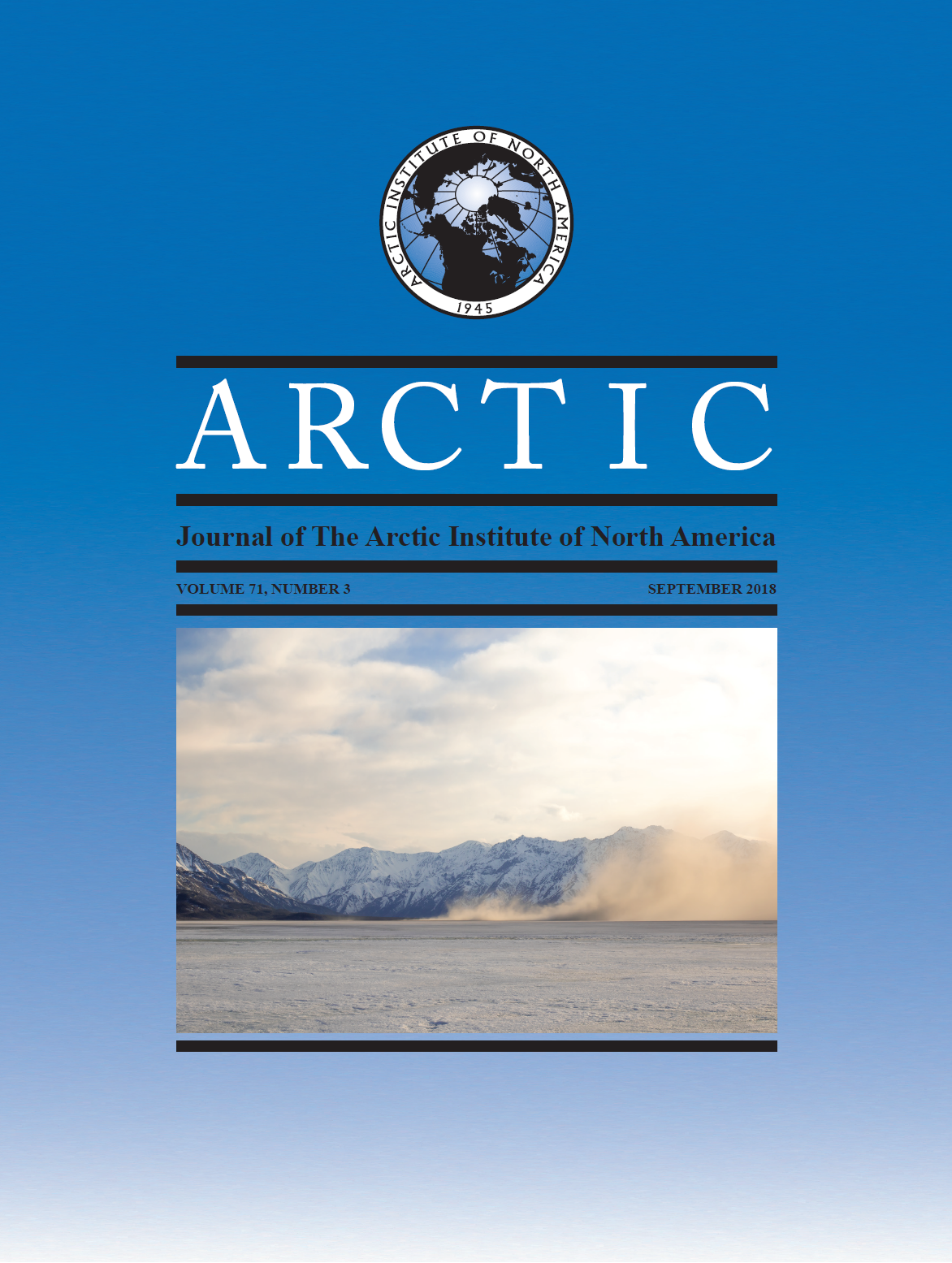Changes in Isotopic Niches across Stages of the Annual Cycle in the Arctic Tern (Sterna paradisaea)
DOI:
https://doi.org/10.14430/arctic4731Ключевые слова:
diet, Arctic seabird, winter, niche overlap, Arctic Tern, Sterna paradisaeaАннотация
Arctic Terns (Sterna paradisaea) are iconic seabirds of polar latitudes, whose successful reproduction is thought to depend on local food supplies near breeding colonies. We used stable isotopes of carbon and nitrogen in eggs, blood, and feathers of terns breeding in the Canadian High Arctic to compare their isotopic niche between life history stages and between two years. The isotopic niche of terns was smaller during incubation than during pre-breeding or winter. Over two breeding seasons, isotopic profiles of Arctic Terns suggested the high importance of local, exogenous nutrient supplies to form eggs (i.e., an income breeding strategy). Our results illustrate that using stable isotopes to assess the niche of a seabird population during critical periods of its annual cycle could be an essential tool in determining the influence that local forage conditions have on breeding decisions, especially for species that mostly rely on exogenous sources of nutrients and energy for egg production.
Скачивания
Загрузки
Опубликован
Выпуск
Раздел
Лицензия
Copyright (c) 2018 ARCTIC

Это произведение доступно по лицензии Creative Commons «Attribution» («Атрибуция») 4.0 Всемирная.


